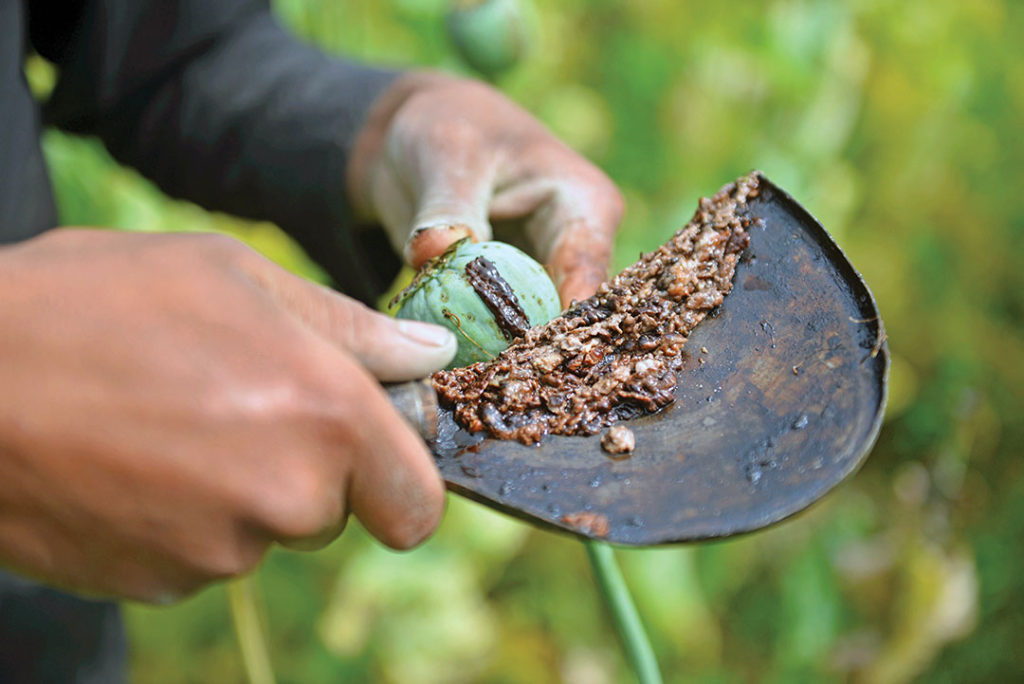UNIPATH STAFF
Reapplying lessons learned in the campaign against Daesh in Iraq, coalition aircraft in Afghanistan are striking drug labs and other illegal sources of revenue that sustain Taliban terrorists.
U.S. and Afghan pilots have struck dozens of heroin-processing labs that provide most of the hundreds of millions of dollars terrorists use to buy weapons and hire fighters.
“The Taliban will have no safe havens. We will continue to exploit their networks and decimate their ability to develop narcotics,” said U.S. Air Force Maj. Gen. James Hecker, commander, 9th Air and Space Expeditionary Task Force-Afghanistan.
“They have become a criminal organization that profits from selling drugs and using those funds to conduct operations that maim and kill Afghans. By cutting off the Taliban’s economic lifelines, we also reduce their ability to continue these terrorist activities.”
The coalition is borrowing an idea that proved effective against Daesh. In Iraq and Syria, aircraft destroyed Daesh-controlled petroleum refineries and tanker trucks that had helped support the group’s terror campaigns.
In Afghanistan, the counterrevenue airstrikes target not just drug labs, but also road checkpoints at which terrorists extort tolls from passersby. Afghan and U.S. commanders suggested they might expand the bombing campaign to include illegal mining operations, another source of money for terrorists.
Despite attempts to suppress it, opium poppy cultivation reached record levels in 2017, threatening to spill more heroin onto world markets. But the coalition is determined that the illegal trade won’t benefit terrorists.
“We will continue to help the Afghan security forces to send a clear message to the Taliban: They will not win on the battlefield,” Gen. Hecker said. “The only way they can have a peaceful solution is to sit down and reconcile with the National Unity Government.”
Sources: Military Times, The Guardian, The Wall Street Journal

